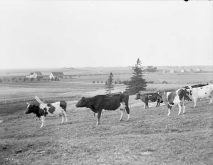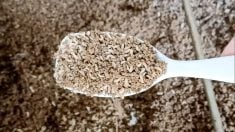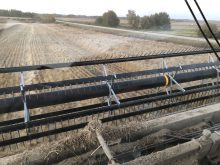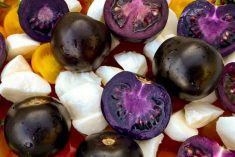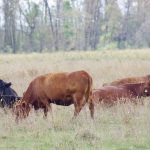I had an unexpected front-row seat to the unforgiving nature of… well, nature… this week.
I was sitting in my backyard enjoying the cool of the evening and waiting for the sun to set when a songbird flew over my head.
No sooner had its presence been registered by my eye, than a brownish-grey streak dove towards it. A merlin grasped the songbird in its talons and carried it away as it screamed its terror.
Read Also

Spoken questions are what make it an interview
Recently, I was exchanging emails with the media email account at a government agency, hoping to reach a source for…
The small falcon settled on top of a nearby telephone pole before I could even really understand what I had just witnessed, and spent the next 10 minutes gorging itself on its meal.
It was a harsh reminder that nature is, in the words of the poet Alfred Lord Tennyson, always ‘red in tooth and claw.’
It was also a good reminder, as I sat there, pondering my First World problems, such as inflation and my dying apple tree, that things could always get worse. It’s always possible to tighten one’s belt a bit, and you can always plant another tree.
Regular readers of this publication will, by now, be familiar with the contributions of our Ukrainian correspondent, Ihor Pavliuk. You’ll find his latest instalment in our June 30 issue of the Co-operator.
Pavliuk touches on his own changing view of what constitutes a ‘problem’ this week. He wrote that a couple of years ago, he’d have said that a drought was the worst thing his country’s farmers might face, and even the worst drought eventually breaks.
But today he, the farmers of his country — and even the country itself — find themselves locked into a battle for their very survival.
Instead of worrying about the weather, they’re now wondering if an army of marauding invaders is about to show up at their farm, carry off their crop and sell it, pocketing the proceeds.
Rather than wondering if prices are going to result in a profit or loss, they’re now wondering if it’s even worth planting their next crop, as they’re all but cut off from world markets.
In lieu of wondering if they should expand their operation, they’re now wondering if they can access operating money or vital supplies like diesel fuel.
It’s a bit sobering to read about that, and helps put my own small problems in perspective.
Closer to home, I read Geralyn Wichers report on flooding in the North Interlake, and couldn’t help but feel the same sort of empathy.
True, they’re not stuck in a war zone, nor do they have a ferocious predator bearing down on them. But anyone who’s been paying attention to the challenges these producers have suffered over the past few years can’t help but feel for them.
First, they faced years of drought, stunting crops and parching pastures. Finally, last season many of them — especially those with cattle — hit the wall. They were forced, having already cut their herd numbers, then cut them again, to sell off prime breeding stock. That’s an almost incalculable loss both to these operations, and the cattle sector generally in Manitoba. It’s not an exaggeration to say it’s going to be years at minimum before the damage is undone — if it ever truly is.
And now, just as they thought the weather pendulum had swung back in their favour, they’re being faced with the bill for nature’s overshoot, in the form of unseeded acres and flooding. And while that might mean a bit more grass for the cattle sector, that grass only grows if the pasture isn’t under water.
No doubt the 93 per cent of the acres that did get in, and the slow start to the forage season, looks a lot better in this light, even if it was an epic struggle for the province’s farmers to hit even that relatively disappointing mark.
But for those who didn’t get their crop in, or who are now facing flooded pastures, this is going to hurt. In many cases it’s going to be a compounded hurt, after years of hardship.
Here I am going to make a pitch — once again — that may be a bit wearisome to regular readers.
I speak of the ineffective and toothless program known as AgriRecovery, intended to fund producers’ disaster losses.
It’s a good theory. Unfortunately it’s got one ‘pants-on-head-stupid’ shortfall. There’s no definition of what a disaster is, and it requires the provincial government to trigger it.
That prompts a provincial pantomime here in Manitoba every time the prospect is raised that’s akin to the provincial agriculture minister pretending to look for his or her wallet while hoping someone else will pick up the bill first.
It’s a disrespectful way to treat farmers who are already suffering hard times. They don’t need to hope their own provincial governments eventually get shamed into paying up. They need to know that reliable and predictable help is on the way.
So, yet again, I’ll ask the policymakers now looking at the soon-to-be-launched latest agriculture policy framework, to do the right thing.
Drag this broken program out behind the barn and kill it with an axe.



